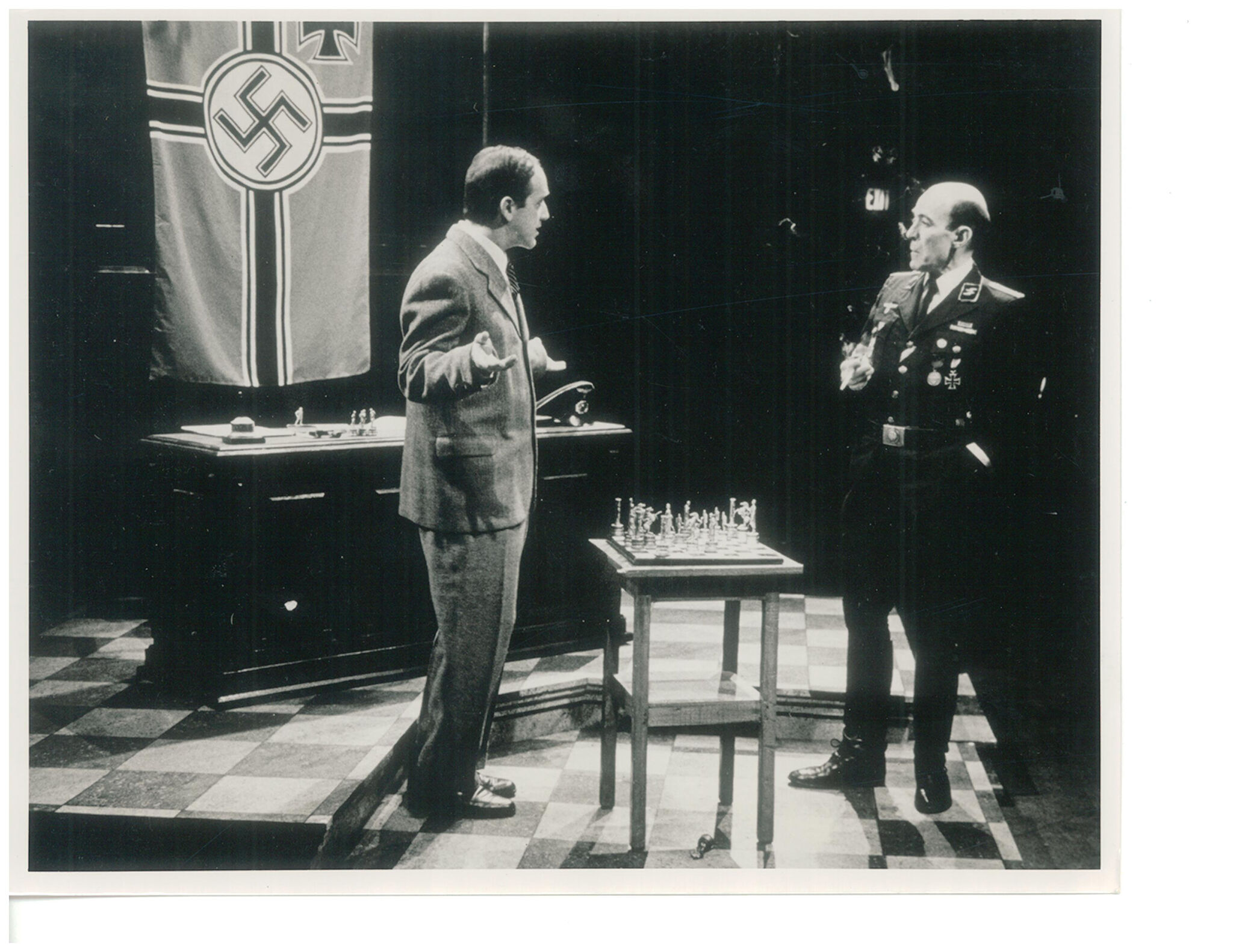THE STAGE 32 LOGLINES
Post your loglines. Get and give feedback.

AND WE WERE LEFT DARKLING
By Lynn H. Elliott
In the aftermath of WW2, in an undefined place, two men play chess, using humans as pawns. Each represents the extreme of man’s humanity and inhumanity to man.
SYNOPSIS:
Handsome, well-educated and heir to a Swedish banking fortune, Raoul Wallenberg strode into the squalor of the Jewish ghettos of WW2 Budapest where his beliefs in human decency and dignity confronts the new god of Adolf Eichmann and the Reich: the god of strength and efficiency. The struggle between these two belief systems is presented against the backdrop of everyday, personal dramas of Jews questioning their god’s presence and questioning how to act morally in such an immoral world.
It all seemed so easy.
Upon orders of Herr Obersturmbannfuehrer Adolf Eichmann, freight trains rush to Budapest to carry Hungarian Jews to Auschwitz and certain death. "Operation Margritte" will quickly and efficiently decimate the last stronghold of European Jewry, Hungary. The allied advance mean little in the beautifully ordered, efficient world of this “banality of evil.” In his characteristically charming, yet deadly and incisive manner, Eichmann will complete his task in minimum time with maximum efficiency--as demanded by his Fuehrer.
And yet . . .
Into the squalor of the Jewish ghettos of WW2 Budapest strides daringly--some say foolishly--Raoul Wallenberg. Is he the image of the hero we crave? So repeatedly create and recreate on movie screens? Hardly. Here, apparently, is no “hero for our time” in this tall, thin, balding, well-educated heir to a Swedish banking fortune. Yet in Budapest, between July, 1944 and January, 1945, Wallenberg dares to stand eyeball-to-eyeball with Eichmann and his Reich.
We, the audience, are drawn into this confrontation by Eichmann himself. He seduces us, barely revealing the horror that lies beneath the charming exterior. In his disarming manner he confronts the audience of the 1990s with those challenging questions: why is Wallenberg, a "hero of the holocaust", forgotten, left to die in a Russian prison after World War II? Why is he, Eichmann, a creature of fascination and horror, pursued, captured, tried and executed while a bewitched world looked on? Discounted hero or mesmeric villain--who, eventually, is the victor of this confrontation?
All is presented against a realistic backdrop of everyday, personal dramas: Anna Sarbo, an old Jew desperately seeking her next meal, trusts her God will provide; Arpad Zador, the middle-aged chair of the Jewish Council, tries to comprehend in an incomprehensible situation, to act morally in an immoral world; and, Kati Levai, a young Jew, sees the new God--power, “macht”--usurping the Jaweh of her ancestors. And for her former schoolmate, Istvan Istoczy, the Hungarian fascist party, the Arrow Cross, offers the control, the domination never before accorded him.
And so we are left with the Obersturmbannfuehrer, presiding, confronting. The Wallenbergs represent something beautiful in humankind, but for most that beauty is unattainable. Best ease our conscience and forget the Wallenbergs of this life: “Out went the candle,/ And we were left darkling.”
Many national and international awards to date.


Rated this logline